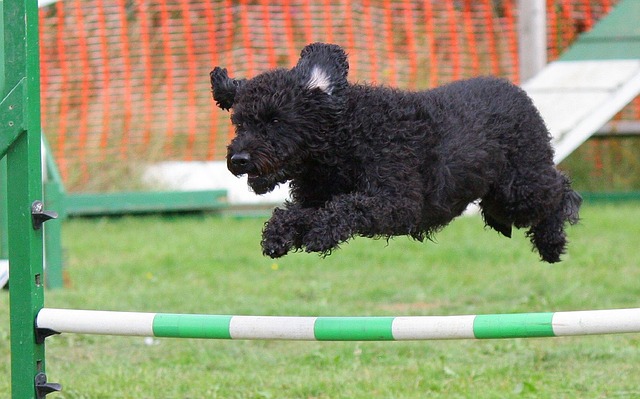Why Cavoodle Puppies Are Popular in Gentle Homes and Allergy-Prone Families
Cavoodle puppies are known for their affectionate temperament, small size, and low-shedding coats. These qualities often make them suitable for gentle households and individuals sensitive to pet dander. Learning about their care and traits helps families prepare for ownership.

What Makes Cavoodle Temperament Ideal for Family Life
The temperament of Cavoodles stems from their parent breeds, resulting in dogs that display remarkable gentleness and adaptability. These dogs typically exhibit calm, friendly dispositions that make them excellent companions for children of all ages. Their patient nature allows them to tolerate the unpredictable behavior of young family members while maintaining a protective instinct without aggression.
Cavoodles demonstrate high intelligence inherited from their Poodle lineage, making them responsive to training and eager to please their owners. This combination of intelligence and gentle nature creates dogs that can easily adapt to household routines and family dynamics. Their social tendencies mean they thrive in environments where they receive regular interaction and rarely display territorial or dominant behaviors that might concern families with multiple pets or frequent visitors.
Understanding Cavoodle Suitability for Allergy-Prone Families
The hypoallergenic qualities of Cavoodles make them particularly attractive to families dealing with pet allergies. While no dog breed is completely allergen-free, Cavoodles inherit low-shedding coat characteristics from their Poodle parent, which significantly reduces the amount of dander circulated in the home environment.
Their coat texture varies from wavy to curly, with curlier coats generally producing fewer allergens. Regular grooming helps maintain these hypoallergenic properties by removing loose hair and dander before they spread throughout the living space. Many families with mild to moderate pet allergies report successful cohabitation with Cavoodles when proper grooming routines and household cleaning practices are maintained.
Essential Guidelines for Caring for a Cavoodle Puppy
Caring for a Cavoodle puppy requires attention to their specific physical and emotional needs during critical development stages. These puppies benefit from consistent socialization starting as early as eight weeks old, helping them develop the confident, friendly personalities they are known for as adults.
Exercise requirements for Cavoodle puppies include daily walks and play sessions, though their energy levels are generally moderate compared to high-energy breeds. Mental stimulation through puzzle toys and training exercises helps channel their intelligence constructively. Their coat requires regular brushing every few days to prevent matting, with professional grooming recommended every six to eight weeks to maintain coat health and appearance.
Nutritional needs during puppyhood focus on high-quality puppy food appropriate for small to medium-sized breeds. Establishing feeding schedules and portion control early helps prevent obesity, which can be a concern given their sometimes food-motivated nature inherited from both parent breeds.
Cavoodle Puppy Costs and Expenses to Consider
The financial commitment of Cavoodle ownership extends beyond initial adoption or purchase costs. Understanding these expenses helps families budget appropriately for their new pet’s needs.
| Expense Category | Estimated Cost Range | Frequency |
|---|---|---|
| Initial Adoption/Purchase | $800 - $2,500 | One-time |
| Veterinary Care (Annual) | $500 - $1,200 | Yearly |
| Professional Grooming | $60 - $120 | Every 6-8 weeks |
| Food and Treats | $300 - $600 | Yearly |
| Training Classes | $200 - $500 | Initial period |
Prices, rates, or cost estimates mentioned in this article are based on the latest available information but may change over time. Independent research is advised before making financial decisions.
Health Considerations and Long-Term Care
Cavoodles generally enjoy good health due to hybrid vigor, though they can inherit certain conditions from their parent breeds. Regular veterinary checkups help monitor for heart conditions common in Cavalier King Charles Spaniels and eye problems that may occur in both parent breeds. Hip dysplasia, while less common in smaller dogs, should be monitored as Cavoodles age.
Preventive care includes maintaining dental hygiene through regular brushing and dental treats, as smaller breeds often experience dental issues. Their floppy ears require regular cleaning to prevent infections, and their active nature means keeping up with nail trimming and paw care.
Making the Right Choice for Your Family
Cavoodles represent an excellent choice for families seeking gentle, intelligent companions that can accommodate household members with allergies. Their adaptable nature makes them suitable for various living situations, from apartments to larger homes with yards. However, potential owners should consider the grooming requirements and moderate exercise needs before making adoption decisions.
Success with Cavoodle ownership depends on commitment to regular care routines, socialization, and providing the mental stimulation these intelligent dogs require. Families who can meet these needs often find Cavoodles become beloved, long-term companions that enhance household harmony while providing the joy and companionship that makes pet ownership rewarding.




